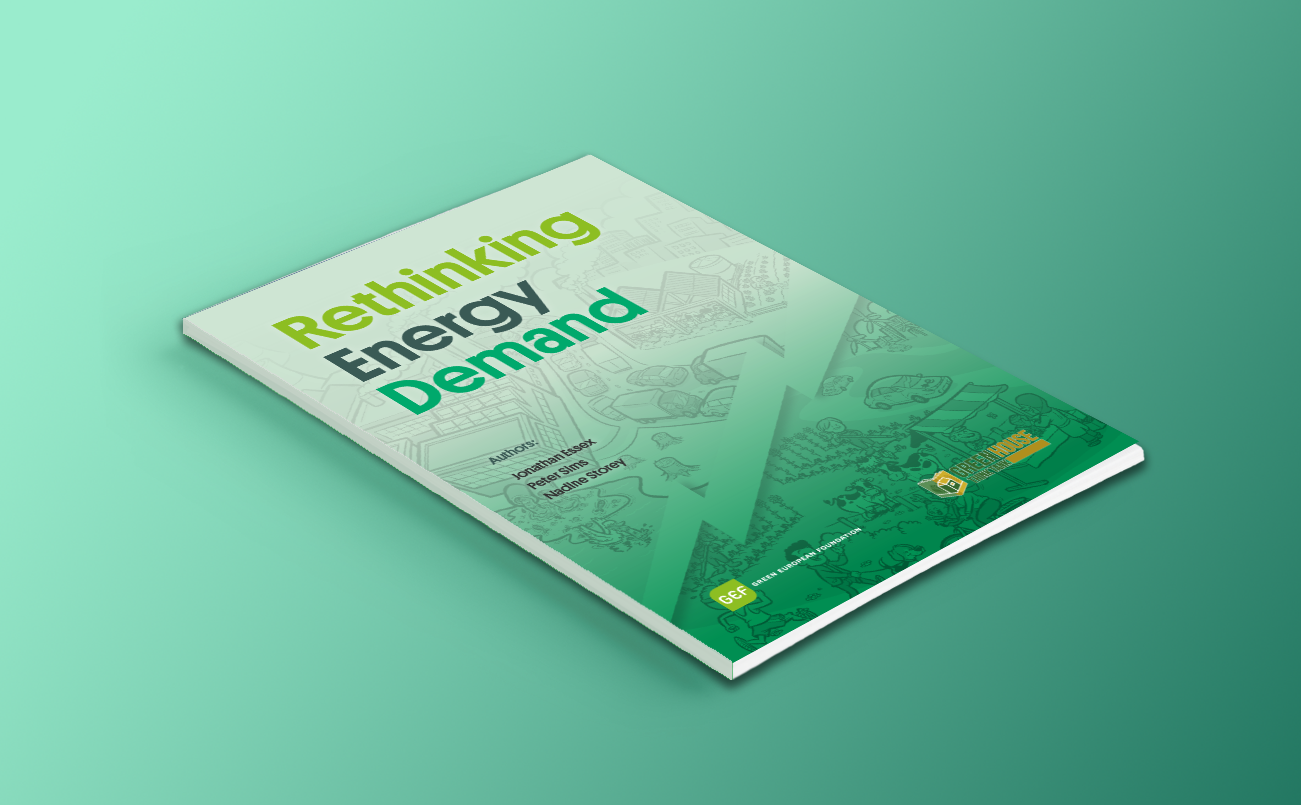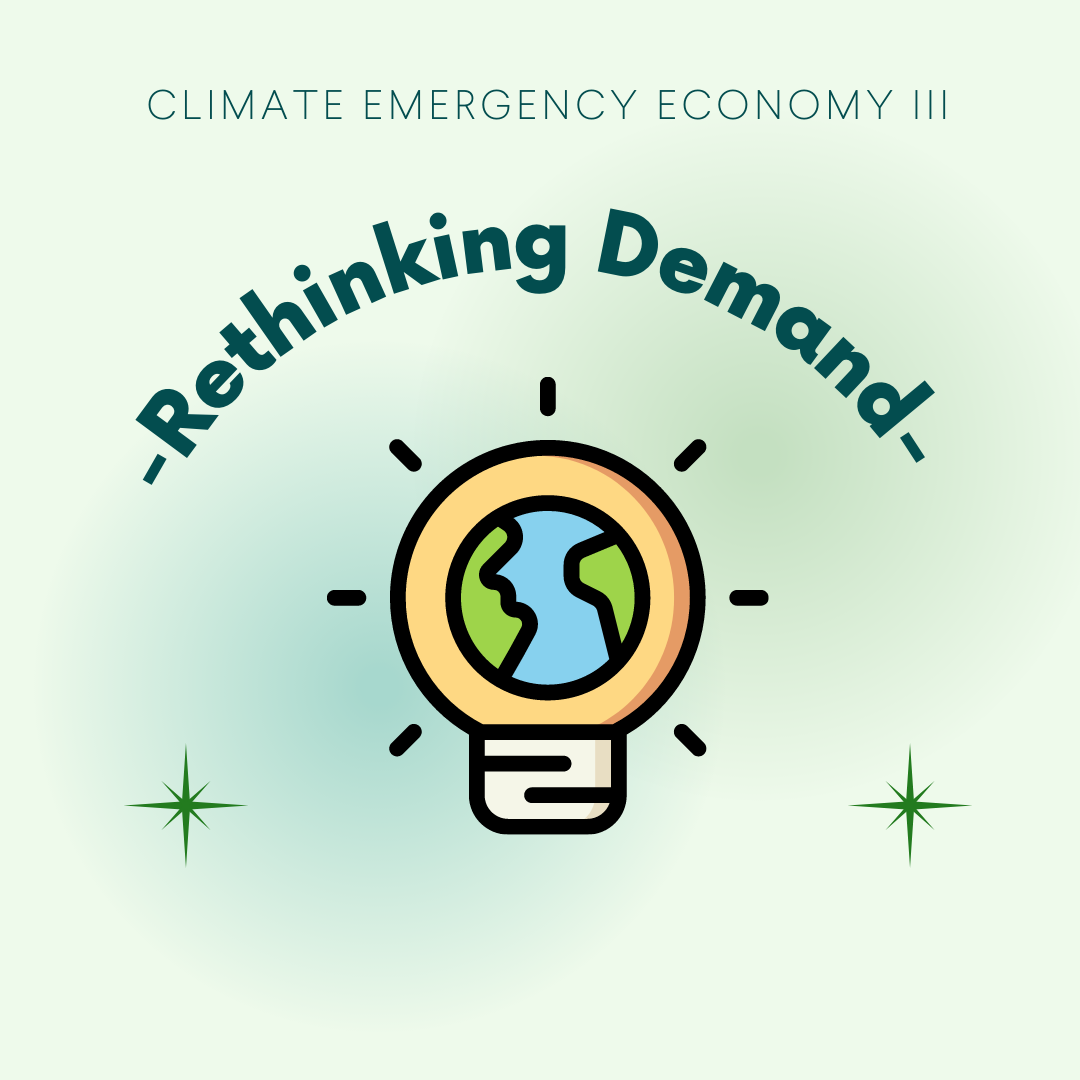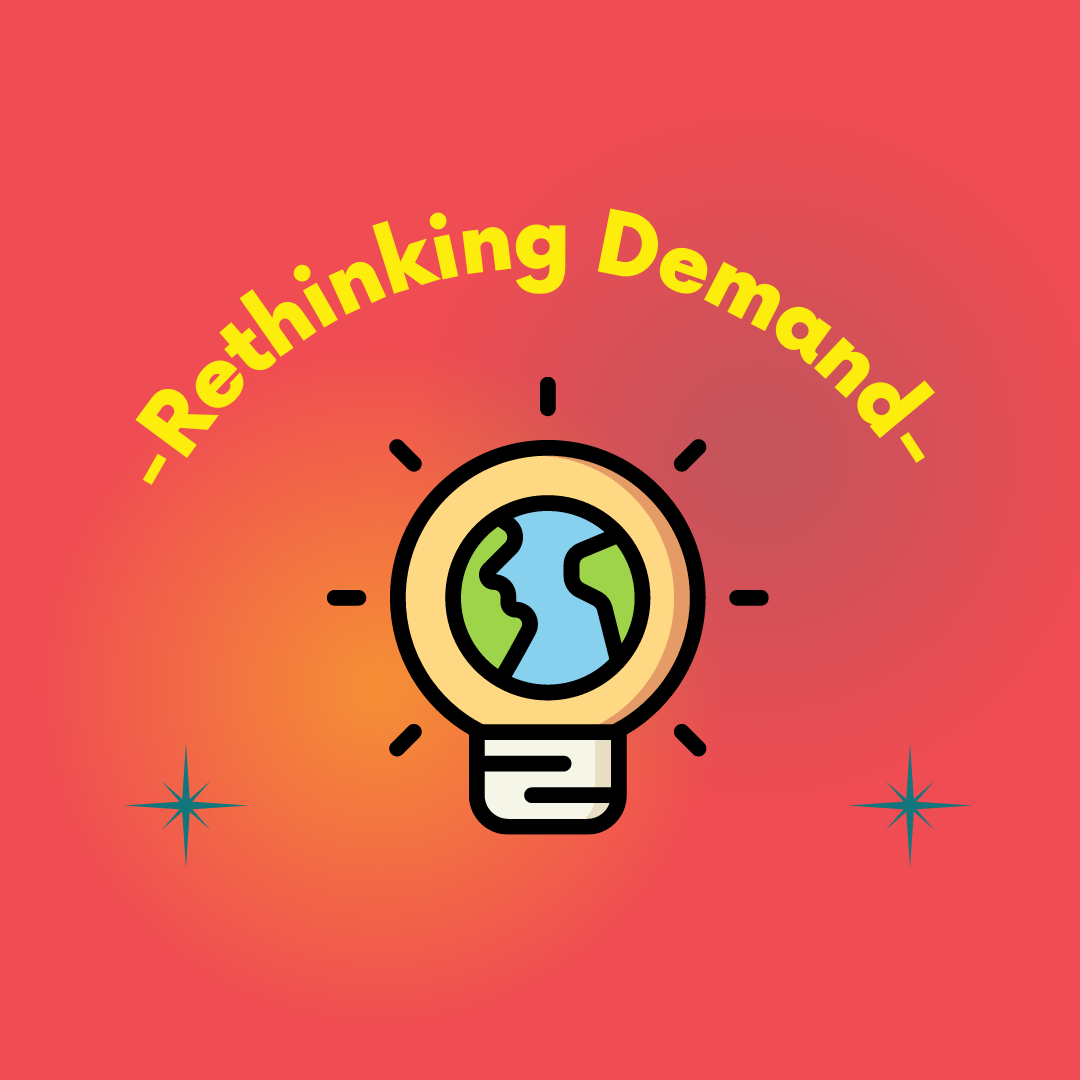About the event
The Green European Foundations is bringing together Green House Think Tank (UK), Etopia (Belgium) and Green Foundation Ireland at an event hosted with the Lord Mayor of Dublin Caroline Conroy. This event will launch our Rethinking Demand Framing Paper and explore the complexity of the actions needed to reduce our demand for energy as well as the politics involved in doing so.
As the urgency of the need to limit emissions to prevent further climate harm grows, and the all-encompassing nature of achieving this dawns, the pivotal role of rethinking how our societies deliver wellbeing for all has become ever more critical. During this conference, sessions will explore how social and business practices, infrastructure, and our governance structures can be transformed to reduce the collective demand for energy and unlock a future without fossil fuels.
Context
This event is part of the GEF transnational project Climate Emergency Economy: Rethinking Demand. Building on several years of work exploring what it means to create an economy fit for the climate emergency, GEF and its partners are this year focusing on the crucial question of how to reduce demand for energy and materials. With the support of Green House Think Tank, Etopia, and Green Foundation Ireland, we will explore how to frame rethinking demand politically, and articulate clear plans for demand reduction so green narratives are better grounded in reality and a shared vision of hope.
Programme
Please note that all times are indicated in IST/BST. For participants joining online from a CEST time zone, everything will be one hour later.
Our FULL PROGRAMME OF EVENTS is available here. Please see below a short overview:
14:00 Address by Dublin’s Lord Mayor Caroline Conroy.
Presentation and discussion of Green House Think Tank’s framing paper “Rethinking Energy Demand” by two of its authors, Jonathan Essex and Peter Sims.
Panel discussion facilitated by Michael Smith (Editor of The Village magazine) with keynote speaker John Gibbons (Environmental journalist and commentator) and Claire Downey (Rediscovery Centre), Davie Philip (Cultivate) and Rosalind Skillen (Keep Northern Ireland Beautiful).
“Circular Economy and Demand Reduction” with Minister Ossian Smyth.
17:00 Closing reflections and drinks reception.
Practicalities
Date and Time: Wednesday, October 26th from 14:00 – 17:30 IST (15:00 – 18:30 CEST)
Location: In person at the Mansion House in Dublin, Ireland. Please note that you can also follow this event online, via Zoom.
Audience: Open to all registered participants. The event will be in English.
Registration: Whether you are joining in person or online, please register in advance via THIS LINK. Spots for in person attendees are limited, so if they fill up you may be placed on a waiting list. With any questions regarding registration, please contact info@greenfoundationireland.ie.
Related reading
For Energy Independence, the EU Must Think Bigger than Power
Energy Crisis: Keeping the Cost of Living Down While Protecting the Climate
Affordable, Sustainable Housing Can Bring the Green Deal Home
The Devil’s in the Data: How the Energy Crisis Could Reshape Ireland’s Economy
Alexander Langer’s Case for an Ecological Conversion
This event is organised by the Green European Foundation with the support of Green Foundation Ireland, Etopia, and Green House Think Tank and the financial support of the European Parliament to the Green European Foundation.








